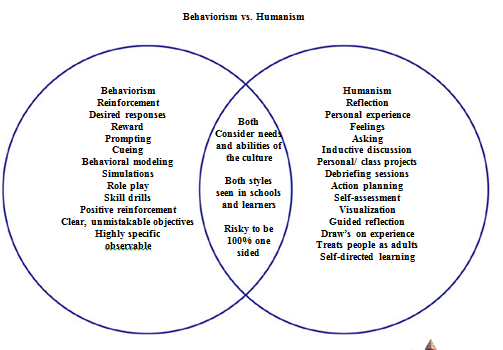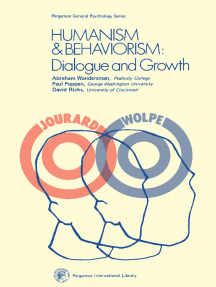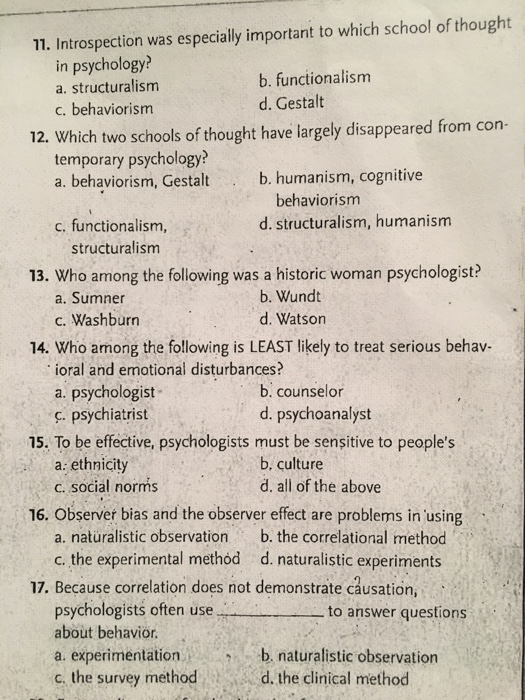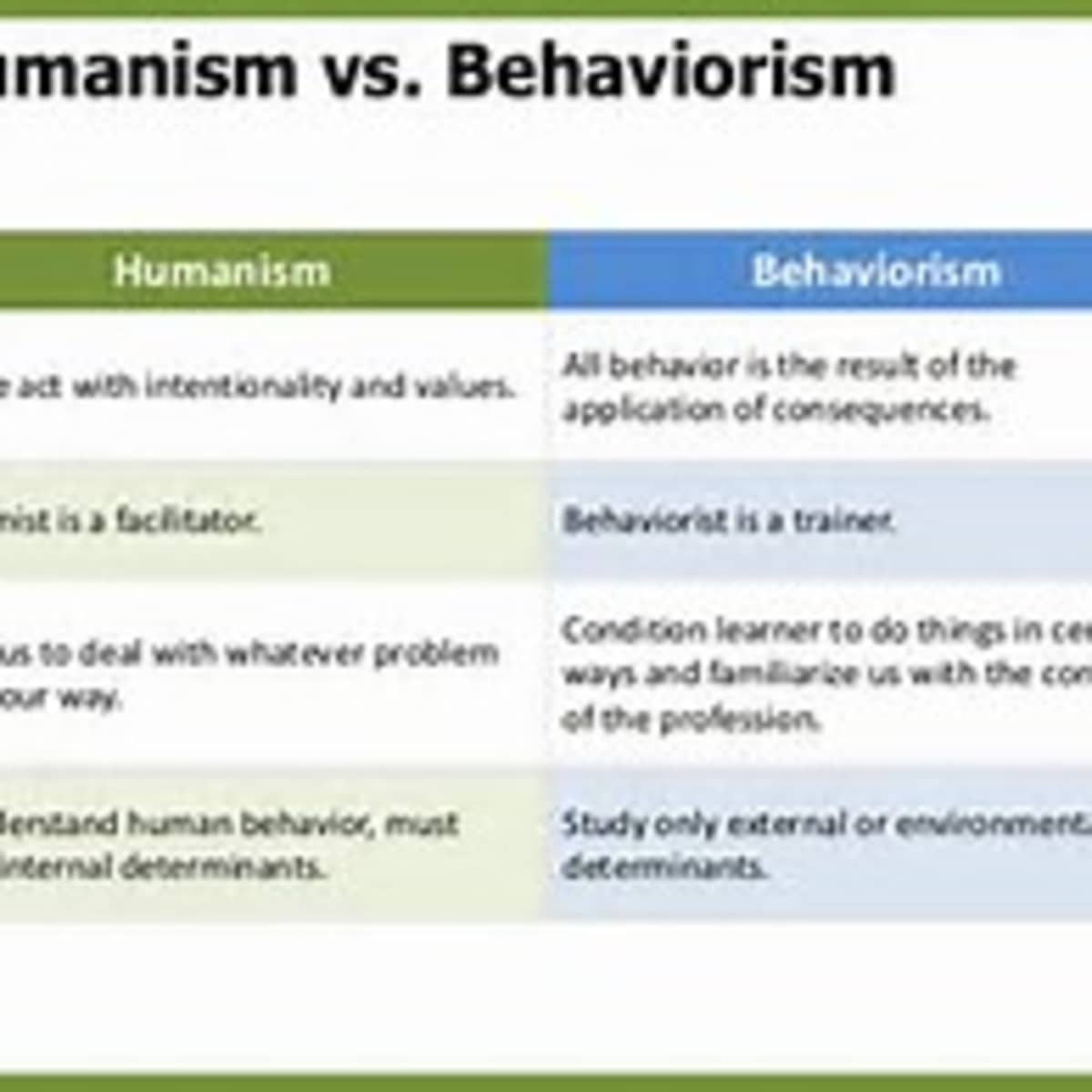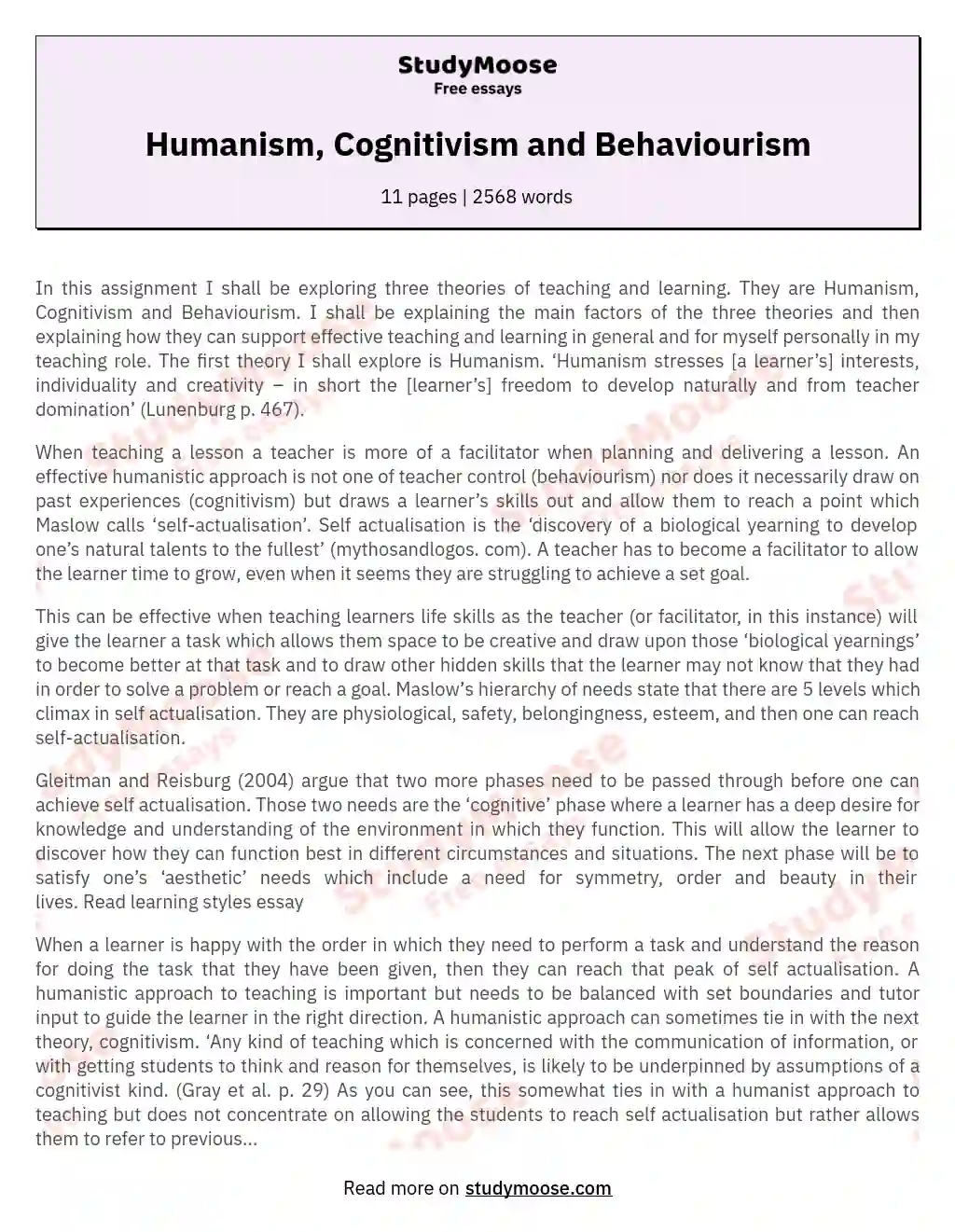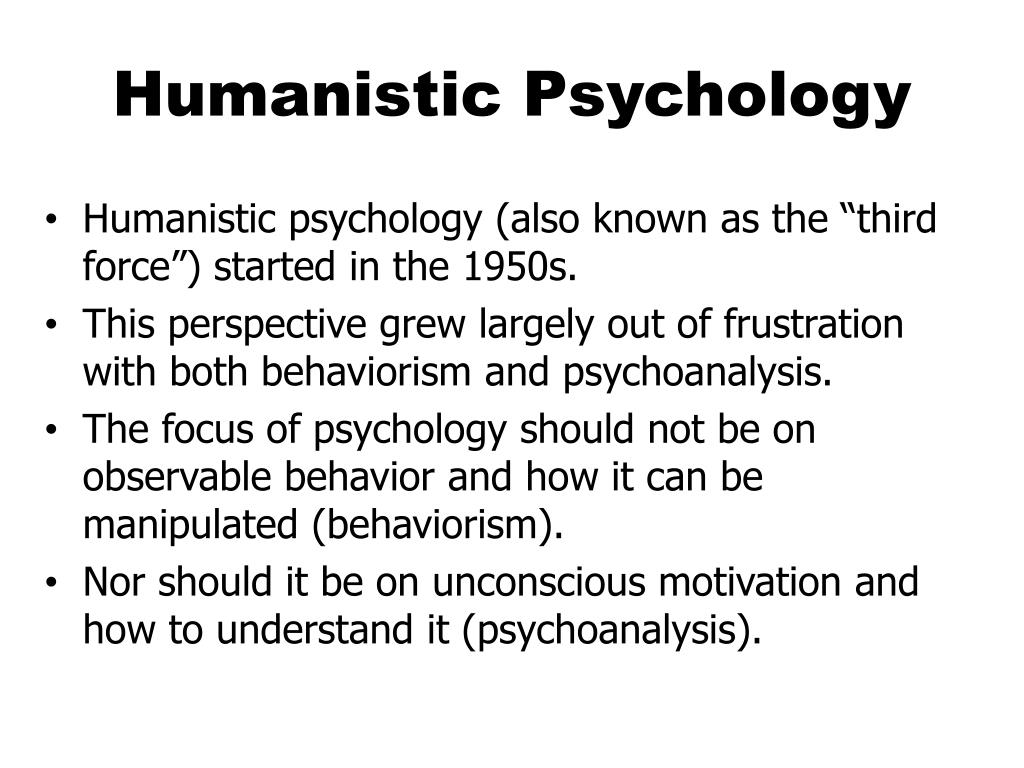Humanism and behaviorism are two different approaches to understanding human behavior and motivation. Both have had significant influence on the field of psychology and continue to be relevant today.
Humanism is a psychological perspective that emphasizes the unique qualities of humans and the inherent value of each individual. It is concerned with the subjective experiences and personal growth of individuals, and it views people as being capable of self-direction and personal choice.
The humanist perspective was developed in the 1950s and 1960s as a response to the deterministic approaches of behaviorism and psychoanalysis. Humanists believed that these approaches were too mechanistic and failed to take into account the complexity and individuality of human experience.
One of the key figures in the development of humanism was Abraham Maslow, who proposed a hierarchy of needs that individuals must fulfill in order to reach self-actualization, or the realization of their full potential. According to Maslow, self-actualization is the highest level of human development and is only possible when all lower needs have been met.
Behaviorism, on the other hand, is a psychological perspective that emphasizes the role of external stimuli and reinforcement in shaping behavior. It views behavior as a result of conditioning and learning, and it focuses on observable behavior rather than subjective experiences or internal states.
Behaviorism was developed in the early 20th century by psychologists such as John B. Watson and B.F. Skinner. Watson believed that psychology should be an objective science that studied behavior rather than subjective experiences, and Skinner argued that reinforcement was the key to understanding and modifying behavior.
While humanism and behaviorism may seem to be quite different, they do have some similarities. Both approaches recognize the importance of the environment in shaping behavior, and both believe that behavior can be changed through learning and conditioning. However, they differ in their focus on the individual versus the external environment and on subjective versus objective observations.
In conclusion, humanism and behaviorism are two different approaches to understanding human behavior and motivation. While they may have different focuses and emphasis, they both have contributed significantly to the field of psychology and continue to be relevant today.

